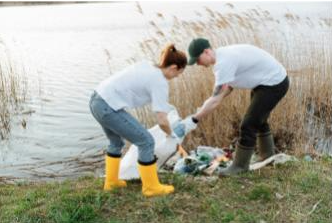Litter
Government guidance on the responsibilities of councils and other duty bodies under the Environmental Protection Act (EPA) 1990 on litter:
The EPA places a duty on councils and other bodies responsible for managing public land to keep that land and some roads within it clear of litter and refuse. To find out if you are a duty body and to understand your responsibilities, there is a statutory code of practice: Litter and refuse: code of practice – GOV.UK
Local councils, other relevant authorities and national parks can carry out enforcement to prevent people from littering. To assist with this Defra has published advisory guidance on enforcement of environmental offences.


How can businesses and councils help prevent littering?
When it comes to dealing with our rubbish, most want to do the right thing. Understanding how to encourage this behaviour through using the right litter bins in the right location can help prevent littering and reduce clean-up costs: ‘Binfrastructure’ – The right bin in the right place | WRAP
How should councils best tackle litter on roads?
Councils are responsible for keeping most roads clear of litter and refuse. Hubbub, the environmental charity, have looked into how targeting common hotspots can have an outsized impact on roadside litter with limited spending. This case study explores their findings.

How can I help keep my area clear of litter?
The best way to prevent people from littering is to show that an area is loved and well cared for. People are less likely to undertake antisocial behaviour if an area is tidy and well used .
Every year millions of Brits take part in litter picking campaigns, either on their own or as part of groups. Your Local council may be able to help you with this by providing equipment and collecting any rubbish you collect.
If you want to learn more about how to get involved in litter picking go to: Join the UK’s largest litter-picking community | Keep Britain Tidy
